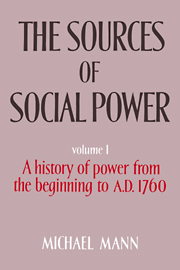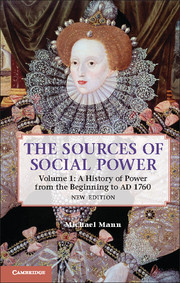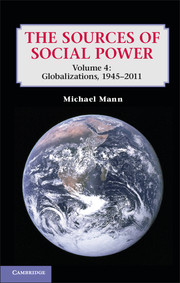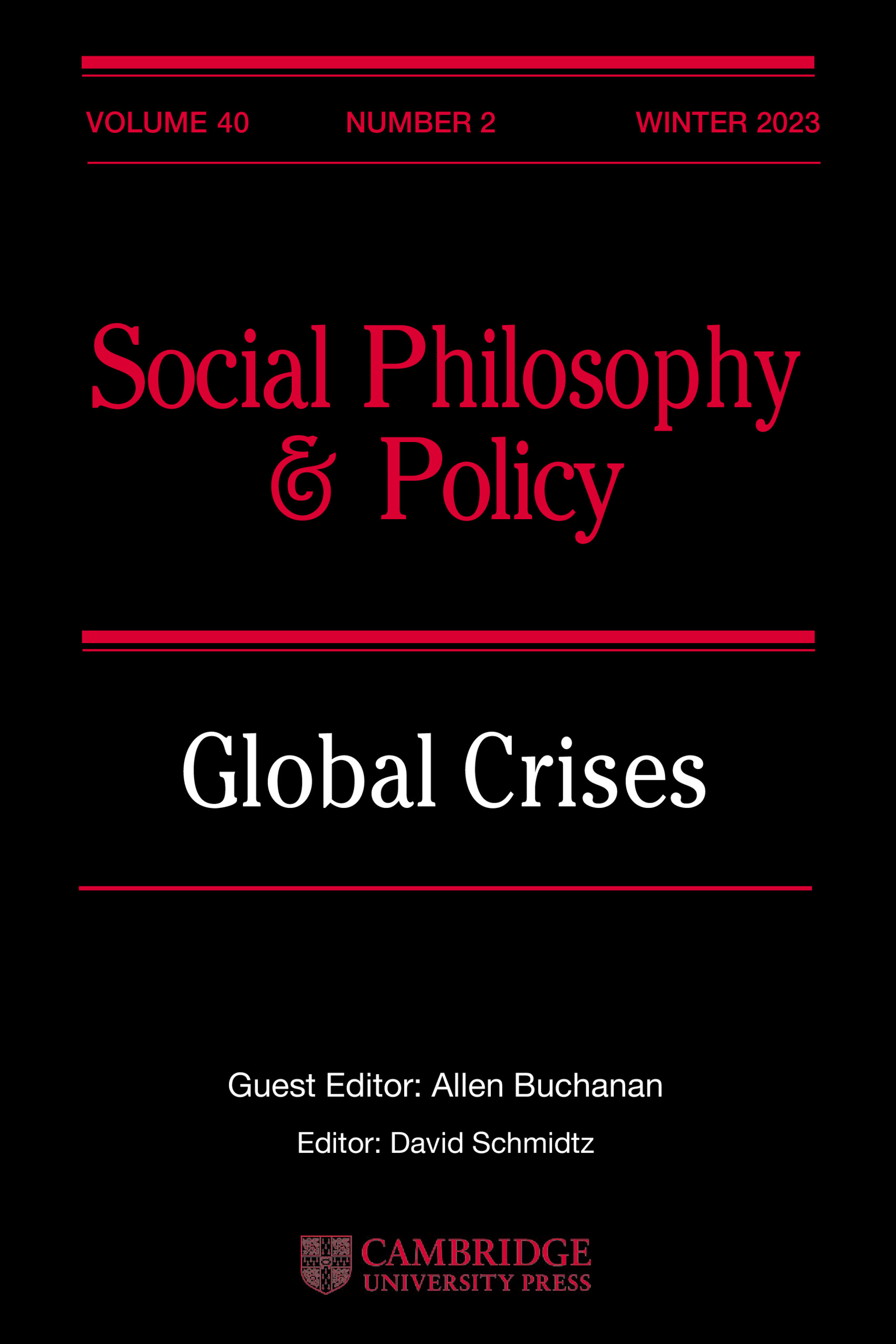The Sources of Social Power
Volume 1. A History of Power from the Beginning to AD 1760
$47.00 USD
- Author: Michael Mann, London School of Economics and Political Science
- Date Published: February 2011
- availability: This ISBN is for an eBook version which is distributed on our behalf by a third party.
- format: Adobe eBook Reader
- isbn: 9780511826856
Find out more about Cambridge eBooks
$
47.00 USD
Adobe eBook Reader
Looking for an inspection copy?
This title is not currently available on inspection
-
This is the first part of a three-volume work on the nature of power in human societies. In it, Michael Mann identifies the four principal 'sources' of power as being control over economic, ideological, military, and political resources. He examines the interrelations between these in a narrative history of power from Neolithic times, through ancient Near Eastern civilisations, the classical Mediterranean age, and medieval Europe, up to just before the Industrial Revolution in England. Rejecting the conventional monolithic concept of a 'society', Dr. Mann's model is instead one of a series of overlapping, intersecting power networks. He makes this model operational by focusing on the logistics of power - how the flow of information, manpower, and goods is controlled over social and geographical space-thereby clarifying many of the 'great debates' in sociological theory. The present volume offers explanations of the emergence of the state and social stratification.
Reviews & endorsements
' … an impressively learned, wise and judicious study. It is a major work - perhaps a great work - and will be a landmark, for sure.' William H. McNeill, University of Chicago
See more reviews' … a very considerable accomplishment. There is no doubt in my mind that the book is an important contribution to comparative sociology.' Anthony Giddens, King's College, Cambridge
Customer reviews
Not yet reviewed
Be the first to review
Review was not posted due to profanity
×Product details
- Date Published: February 2011
- format: Adobe eBook Reader
- isbn: 9780511826856
- contains: 9 b/w illus. 11 tables
- availability: This ISBN is for an eBook version which is distributed on our behalf by a third party.
Table of Contents
Preface
1. Societies as organized power networks
2. The end of general social evolution: how prehistoric peoples evaded power
3. The emergence of stratification, states, and multi-power-actor civilisation in Mesopotamia
4. A comparative analysis of the emergence of stratification, states, and multi-power-actor civilisations
5. The first empires of domination: the dialectics of compulsory cooperation
6. 'Indo-Europeans' and iron: expanding, diversified power networks
7. Phoenicians and Greeks: decentralized multi-power-actor civilisations
8. Revitalized empires of domination: Assyria and Persia
9. The Roman territorial empire
10. Ideology transcendent: the Christian ecumene
11. A comparative excursus into the world religions: Confucianism, Islam, and (especially) Hindu caste
12. The European dynamic: I. The intensive phase, A. D. 800–1155
13. The European dynamics: II. The rise of coordinating states, 1155–1477
14. The European dynamic: III. International capitalism and organic national states, 1477–1760
15. European conclusions: explaining European dynamism - capitalism, Christendom, and states
16. Patterns of world-historical development in agrarian societies
Index.
Sorry, this resource is locked
Please register or sign in to request access. If you are having problems accessing these resources please email [email protected]
Register Sign in» Proceed
You are now leaving the Cambridge University Press website. Your eBook purchase and download will be completed by our partner www.ebooks.com. Please see the permission section of the www.ebooks.com catalogue page for details of the print & copy limits on our eBooks.
Continue ×Are you sure you want to delete your account?
This cannot be undone.
Thank you for your feedback which will help us improve our service.
If you requested a response, we will make sure to get back to you shortly.
×






